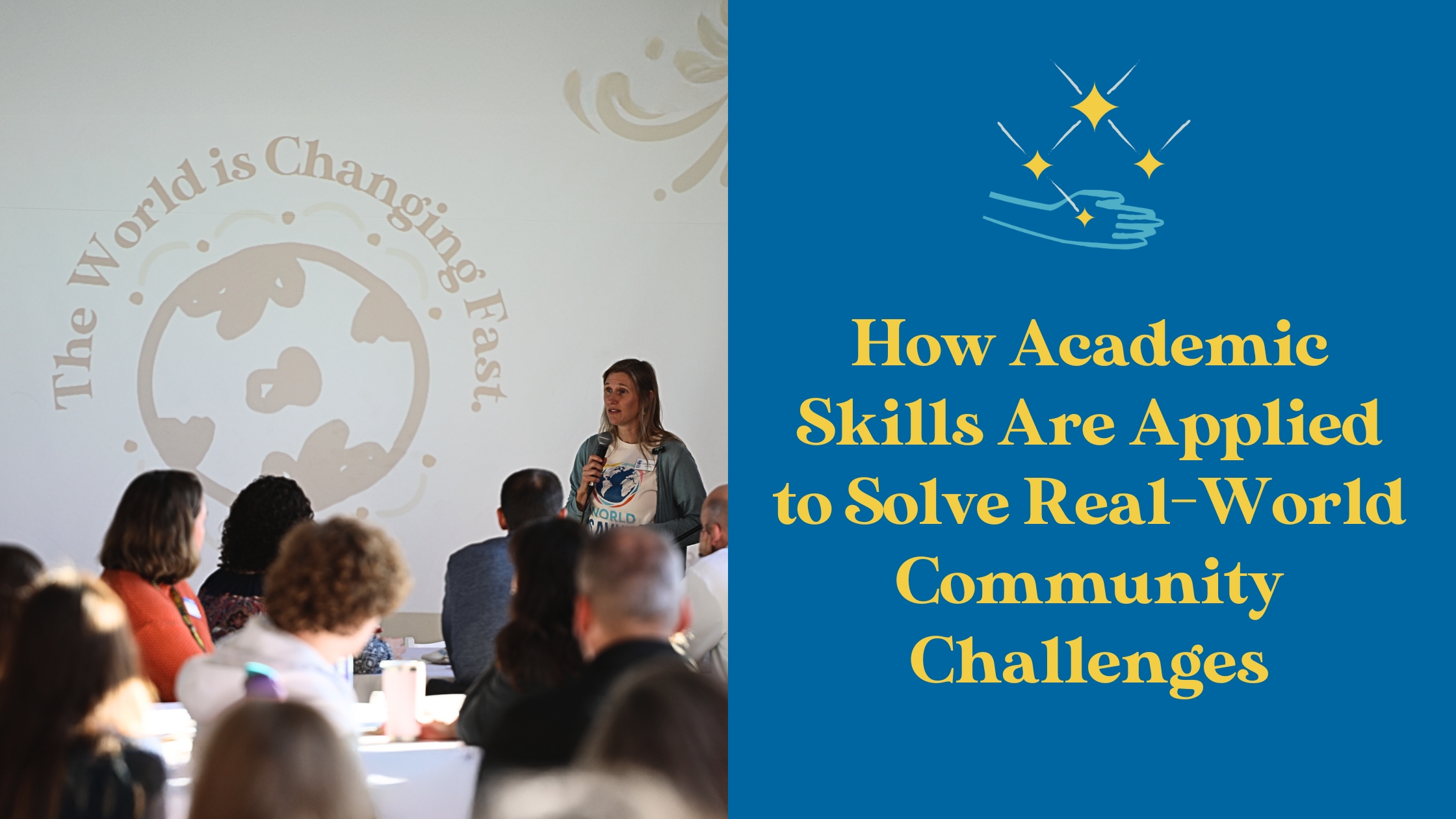When we think about education, it is easy to picture classrooms filled with textbooks, worksheets, and tests. For decades, this has been the default approach: the acquisition of knowledge measured in isolation, how much a student can memorize, regurgitate, or reproduce on an exam. But the world outside school does not work that way. Ask any workforce leader: Work does not hand you a multiple-choice test when you need to solve a problem, negotiate a disagreement, or launch a project. Life asks: Can you take what you know and use it to make a difference
Context, the ability to see how knowledge matters in the real world, is what bridges this gap. It transforms abstract skills into tools for impact. Math becomes meaningful when it helps plan a community garden, analyze local air quality, or budget for a school project. Literacy becomes powerful when it allows students to advocate for themselves or craft messages that inspire change. Critical thinking becomes urgent when applied to real questions: How do we balance competing interests? How do we solve problems when solutions are not clear-cut?
At the same time, much of today’s education landscape has been shaped by priorities like standardized testing, structured curricula, and managing large classrooms, all of which serve important purposes. But when these elements become the whole story, we risk losing the deeper “why” behind learning. Students are eager for relevance; they want to see how what they learn connects to their lives and communities. The opportunity before us is to bring context back into focus, to make learning both rigorous and real so every young person can see their education as a pathway to purpose.
At a World Savvy partner school, Sejong Academy Korean Immersion School, students in the K-Pop Club, led by teacher Kyungnam Hur, explored questions of identity and community through collaborative songwriting and performance. They considered how to express who they are and how they relate to their communities through music, how to create songs that reflect shared identities and experiences, and why collaboration in artistic creation matters. Two original songs emerged from this student-led project, each exploring universal themes such as friendship and graduation. Through songwriting and performance, students expressed both the emotional depth and celebratory energy of these life transitions. Taking the lead in every stage of production—from composing melodies and writing lyrics to recording, editing with production software, and creating music videos—students built confidence and technical skills as creators. Their work brought multicultural perspectives to life, blending diverse influences and honoring their identities. This collaborative process modeled inclusion, storytelling, and respect for global perspectives.
The stakes could not be higher. Young people entering adulthood today will inherit challenges that are global in scale but local in impact. Preparing them is about giving them the tools, the agency, and the context to act. We know that passing tests is important for gaining more opportunities, that’s why making test content relevant and engaging is holisitc to academic achievement and real world preparation. When learning is grounded in the real world, it stops being a set of abstract requirements and starts being a preparation for life itself.
Education without context leaves potential on the table. Context without education leaves energy unfocused. Together, they create a generation of learners who are not just knowledgeable but empowered to make change.
